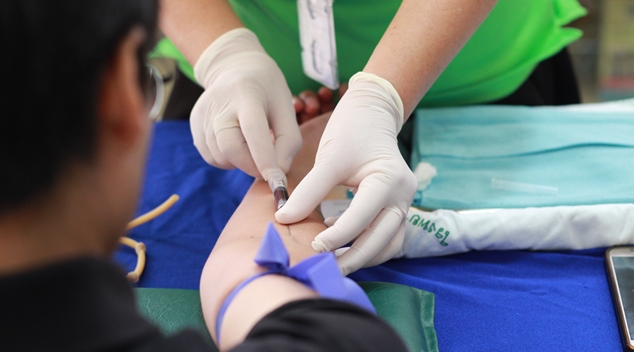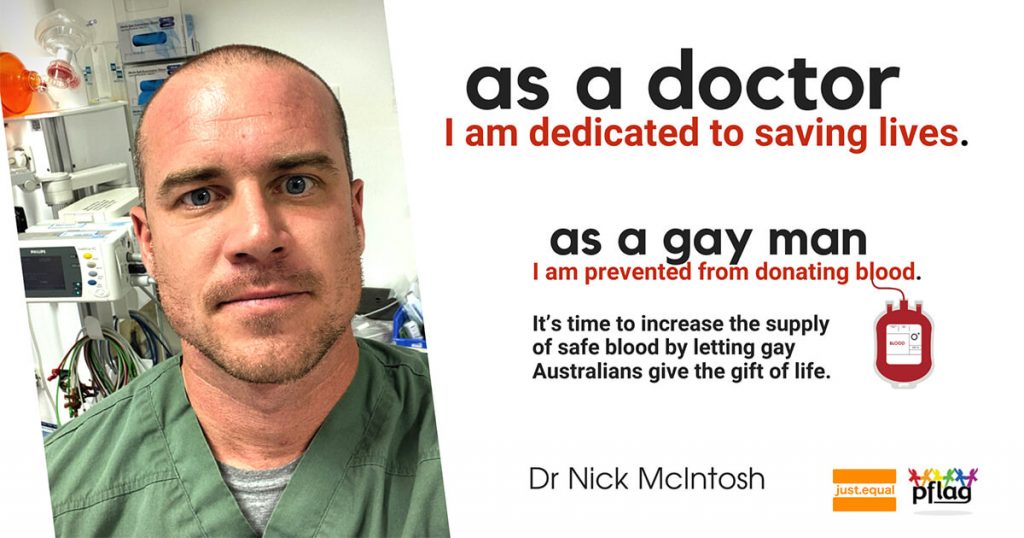
LGBTIQ+ advocates have launched a new campaign that hopes to remove the historic ban on gay and transgender people donating blood.
Just.equal and PFLAG are encouraging supporters of a non-discriminatory blood policy to write to Australia’s health ministers who are currently considering changes to existing blood donation policy.
Just.equal spokesperson, Rodney Croome, says the current ban on sexually active gay/bi men and trans folk should be replaced with a new policy that screens for sexual safety rather than their partner’s gender.
“This would make the blood supply safer, more abundant and less discriminatory, which is particularly important at a time of medical emergency like now,” Croome said.
“In the United States, hundreds of health professionals and mainstream politicians have spoken out against the ban on blood donation by men who have sex with men, and now it’s time for Australians to have their say as well.”

National PFLAG spokesperson Shelley Argent adds that she believes her gay son and her straight son should be treated equally by society.
“The current gay blood ban is based on the assumption that gay sex is always risky and straight sex is always safe which is nonsense,” said Argent.
Australia’s Therapeutic Goods Administration, which sets blood donation guidelines, has proposed to reduce the celibacy period before gay or transgender people can donate from twelve months to three – however all federal, state and territory health ministers must sign off on the change before it takes effect.
just.equal and PFLAG say the proposed change doesn’t go far enough and now is the time to rethink blood donation policy.
“A three month celibacy period won’t remove discrimination or substantially increase the supply of safe blood,” Croome continued.
“It’s time for Australia’s health ministers to consider a more effective blood donation policy which focuses on what actually creates disease risk: unsafe sex.”
Currently, any man who has sex with a another man in the last twelve months is precluded from donating blood. The same goes for any transgender person, regardless of identity, who has had sex with a man.

Love OUTinPerth Campaign
Help support the publication of OUTinPerth by contributing to our
GoFundMe campaign.





